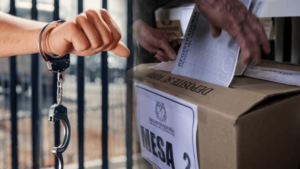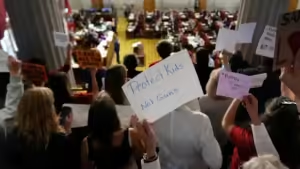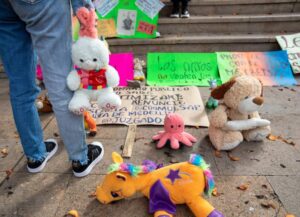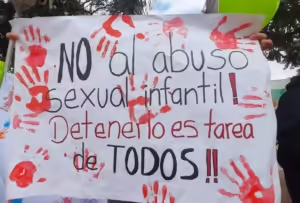
Mexico and the United States have taken a major step forward in strengthening border security to combat the illicit trafficking of fentanyl and weapons. On Tuesday, July 24, the two countries signed a joint declaration to further their efforts in regulating migration and curbing the flow of illegal substances and weapons across the shared border.
The agreement was reached after a meeting between Mexican President Andrés Manuel López Obrador and high-level representatives from the United States, including National Security Advisor Elizabeth Sherwood-Randall, Deputy Attorney General Lisa O. Monaco, and Acting Undersecretary of Homeland Security Kristie Canegallo. From Canada, National Security and Intelligence Advisor Jody Thomas and Head of the Office of the National Security and Intelligence Advisor Ramzi Nashef were also present.
The joint communiqué noted that the two countries are committed to addressing the trafficking of firearms that contributes to violence and destruction on both sides of the border. In addition, they agreed to strengthen efforts to combat drug traffickers and disrupt the supply of chemicals used to manufacture fentanyl, as well as to prevent the trafficking of such narcotics across the shared border.
The leaders also discussed challenges and advances in cooperation regarding regional migration and committed to continue forging a region-wide response guided by the principles set forth in the Los Angeles Declaration on Migration and Protection. To that end, Mexico and the United States are committed to further expanding the availability of legal avenues throughout the region, including to Mexico and the United States. They also discussed expanding joint development work in Central America and maintaining strong consequences for irregular entry at our shared border.
The joint declaration is a major step forward in the fight against illicit trafficking and will help to ensure the safety of both countries. Mexico and the United States are committed to continuing to work together to modernize and promote infrastructure projects that support their border communities, benefit both nations, and strengthen their bilateral relationship and security.
With information from: U.S. DEPARTMENT of STATE








1 thought on “Mexico and U.S. Strengthen Border Security to Combat Illicit Trafficking”